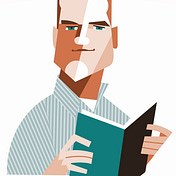
Mark Athitakis
A newsletter about reading, books, and reading about books.
By subscribing, I agree to Substack’s Terms of Use and acknowledge its Information Collection Notice and Privacy Policy

A newsletter about reading, books, and reading about books.